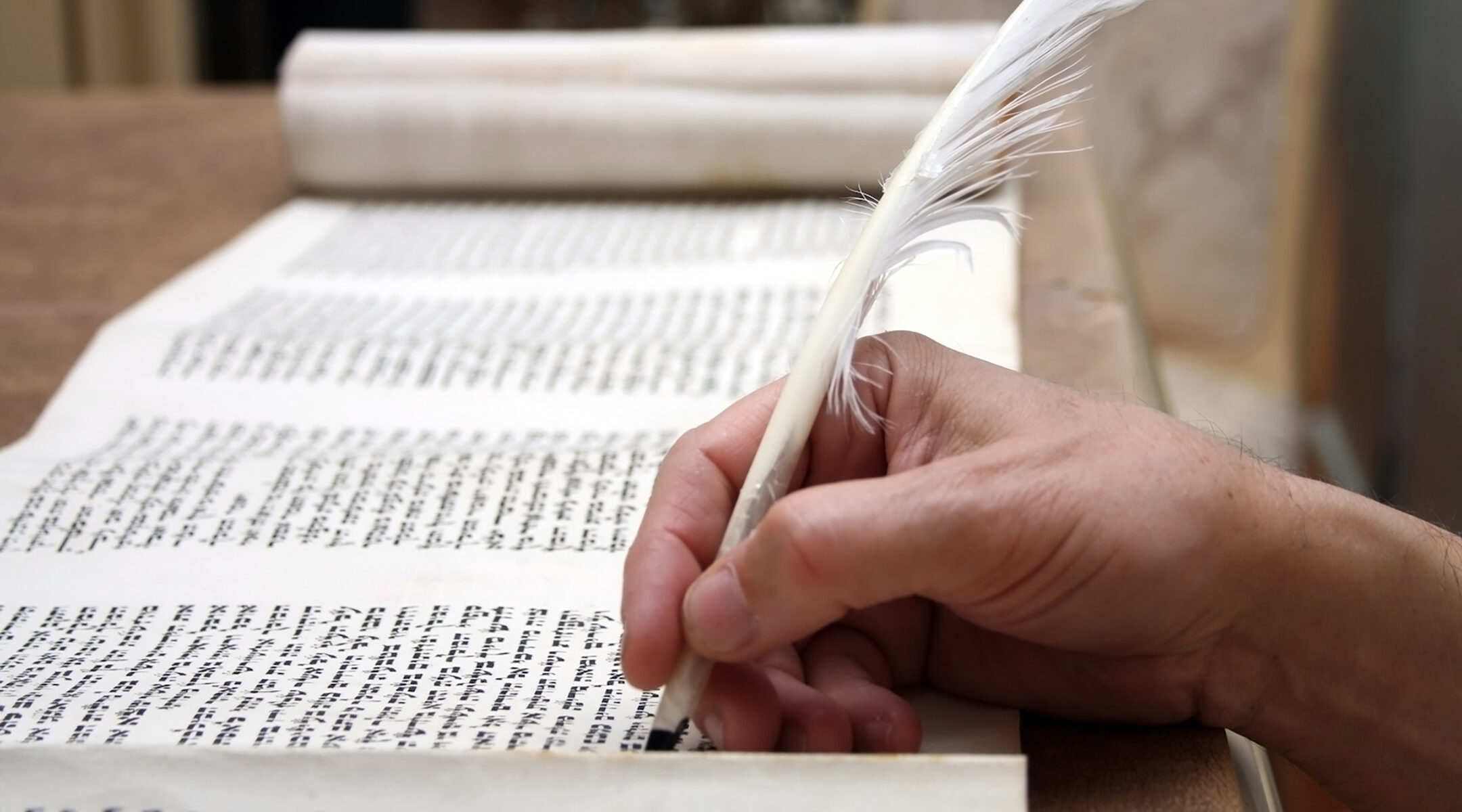(JTA) — With the conclusion of Passover last month, we now find ourselves in the period of the Jewish calendar known as the Omer, the 49-day span between the Exodus from Egypt marked on Passover and the giving of the Torah celebrated on Shavuot, which begins this year on Thursday evening, May 25. Jewish tradition considers these two holidays inextricably linked, the seven weeks between them seen as an incremental process of purification from the defilement of slavery to a state in which the Israelites were able to receive the Torah. In this sense, Passover and Shavuot are bookends, each representing a stage in the process of freedom.
But what if Passover and Shavuot are actually opposites — not compatible but in tension with one another? This is what Rabbi Shimon Gershon Rosenberg, known as Rav Shagar, argues in his homily “In the Name of the Father.” Rav Shagar was a student of Rabbi Zvi Yehuda Kook and a widely read spiritual leader in the religious Zionist movement focusing on postmodernism and traditional Judaism. He died in 2007 at the age of 57.
Shagar’s essay is built on the work of French philosopher Alain Badiou, and specifically his notion of the “event” — an occurrence so unprecedented and revolutionary it changes everything. Shagar wants to contrast the event that is the giving of the Torah with the mere “enlightenment” (he’arah) of Passover. The enlightenment that is the Exodus might be extraordinary. It might even be miraculous. But it is not unique. Nothing new came into the world with the Exodus; it merely rearranged what already existed.
Revelation, however, is an event. The giving of the Torah introduces something that has never before existed, and thus shakes the very foundations of existence.
For Shagar, the event of revelation introduces the universal into the particular. Passover is about the particular — the formation of ethnos, or the Jewish family. This is why the Passover seder is framed around the relationship between parent and child. Shavuot is categorically different — it is not about the experience of a particular people emerging from slavery but about the encounter of that people with the divine.
As I understand Shagar, he is suggesting that revelation changes everything. But while Badiou suggested that the event changes everything by destroying what came before, Shagar suggests that what existed before the event is not destroyed, but transformed by it. Put another way, Passover can survive Shavuot. But for that to happen, Passover must incorporate the universal into the particularity of the Jewish story of freedom from slavery. For Shagar, failing to do that would be a failure of the Jewish covenant with God. If all Jews bring to the word is that they are a distinct people, they have introduced nothing new.
In some ways, this is the perennial challenge of Judaism: how to incorporate the universal nature of God’s revelation at Sinai within the particularity of the Jewish story. Judaism, according to Shagar, must embrace the universality of the event by absorbing it into the past. But the past will always be reluctant to comply. The familial home where the story of the Exodus is annually retold is comforting. The event of revelation is discomfiting. It rips the familial from its roots and demands more than retelling the story of a people. It demands moving beyond the ethnos.
This is only possible with the introduction of something that is totally new. This may be what the Midrash meant when it taught that the ultimate purpose of Sinai is not the giving of the Torah, but the subsequent giving of a “new Torah.” That is how the sages understand the prophetic view of redemption.
Thus, Shavuot is not (only) the culmination of Passover, but (also) its subversion. The danger (or perhaps hazard) of Passover is remaining mired in the ethnos, in the familial comfort of the Exodus, without the event in which God enters the world and introduces that which is utterly new. This is the moment where everything changes irrevocably, where the tradition is both introduced and overcome: That is matan Torah — the giving of the Torah.
A version of this essay appeared in My Jewish Learning’s Recharge Shabbat newsletter. Subscribe here.
JTA has documented Jewish history in real-time for over a century. Keep our journalism strong by joining us in supporting independent, award-winning reporting.







